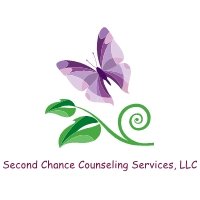When Coping Becomes a Crisis: Understanding Self-Medication with Alcohol and Drugs
In the world of mental health, one of the most common—and most misunderstood—struggles people share with me is the quiet drift into self-medication. It rarely starts dramatically. In fact, it often begins with a simple thought: “I just need something to help me relax.” A glass of wine to take the edge off after a long day. A few drinks to feel more sociable. A pill to help numb the anxiety or help you sleep. For many people, these moments feel harmless. But over time, what starts as a short-term coping strategy can turn into a long-term problem.
Self-medication is the use of substances—usually alcohol or drugs—to manage emotional distress, mental health symptoms, or difficult life experiences. The intention makes sense: people want relief. They want the racing thoughts to quiet down, the sadness to feel less heavy, or the stress to lose its grip. But while substances can offer temporary relief, the relief is short-lived and often comes with a high cost.
One of the reasons self-medication becomes so dangerous is that it works—but only in the moment. Alcohol, for example, can slow down the nervous system, creating a brief sense of calm. Some drugs may create a feeling of energy, numbness, or escape. But as the effects wear off, the original distress usually returns even stronger. This is because substances interfere with brain chemistry, especially the systems that regulate mood, anxiety, and reward. Over time the brain begins to rely on substances instead of its natural coping mechanisms, making stress, anxiety, or depression even harder to manage without them.
People often self-medicate because they feel overwhelmed, unsupported, or pressured to “keep it all together.” High-functioning individuals—professionals, parents, caregivers—are especially vulnerable because others assume they are fine. Many of them share that they feel ashamed to admit their struggles. They worry about judgment, stigma, and disappointing people. So instead of reaching out for help, they reach for a drink or something stronger. Not because they want to, but because it feels like the only option left.
What often gets overlooked is the connection between mental health conditions and substance use. Research consistently shows that anxiety, depression, trauma, and chronic stress significantly increase the risk of using substances as a coping strategy. Unfortunately, using alcohol or drugs can worsen these very conditions. A cycle forms: distress leads to substance use, substance use intensifies distress, and the cycle continues.
The good news is that self-medication is treatable—and talking about it is the first step toward breaking the cycle. Therapy can help people understand the emotional roots of their substance use while teaching healthier, sustainable coping strategies. Support groups can offer community and reduce shame. Medical providers can offer guidance and treatment options that align with physical and mental health needs.
If you or someone you care about is self-medicating, remember this: reaching out for help is a sign of courage, not weakness. Healing doesn’t happen overnight, but it does happen. You deserve support, safety, and healthier ways to soothe the pain you’ve been carrying alone.
References
American Psychological Association. (2023). Self-medication and mental health. https://www.apa.org
Khantzian, E. J. (2017). The self-medication hypothesis of substance use disorders: A reconsideration and recent applications. Harvard Review of Psychiatry, 25(5), 243–255.
National Institute on Drug Abuse. (2023). Comorbidity: Substance use disorders and mental illness. https://www.drugabuse.gov
